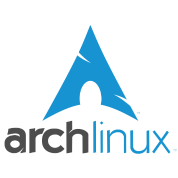To say the very least, this is a loaded question that often sets of flaming wars and petty squabbling – neither of which are useful.
My objective is to offer some alternative to M$ for anyone who wants to learn and try new things, and escape the clutches of the proprietary BS we are becoming ever-increasingly and sliently subjected to.
I installed almost every single version of almost every single Distro that was recommended using VirtualBox, and then played and tweaked until I had the resemblance to the systems I was used to using daily.
This included beginner and also advanced OS’s. Lightweight, Heavyweight….the works……ubuntu, kubuntu, lubuntu, xubuntu, zorin, pinguy, mint, elementary, bohdi, suse. I tried PCLinuxOS, but was not successful. I have (recently) created FreeBSD and NetBSD desktops.
I tried different DM’s (Desktop Managers) and different settings on each. I read up a lot and did what was recommended, and in many cases, what initially seemed and felt very good, quickly became annoying enough to scrap and restart (over & @#!$%#!!! over) until I found the bits I will recommend in the end.
Specifically, I started out by removing apps from M$ that were not freely on *nix distros. More specifically, I even isolated out apps that were not easily accessible/installable in standard repos. I started doing more and more tasks/stuff via CLI(command line interface). I soon realised that the standard M$ options here are terrible. I wanted a BASH terminal so I could script things.
My conclusion (biased opinion) is along the following lines:
-
Desktop/Workstation
- debian
- archlinux
-
Server
- debian
- CentOS
- FreeBSD
- pfSense/OPNsense (firewall boxes)
- FreeNAS (NAS boxes)
In addition, in terms of GUI, I prefer LXDE because LXDE is very very light
[update:2019] Having now gained a small amount of experience with debian, I have to admit that it is probably the best-of-breed for most applications. It is light, fast, stable and compatible for most requirements.
Walkthroughs of each install to follow (some day)
![[updated:2019/04] So which *nix O/S is the right one to switch to then?](https://murgatroyd.za.net/wp-content/uploads/2018/07/linux-lo.png)

